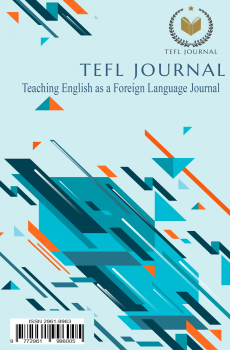
Teaching English as a Foreign Language Journal
ISSN - (Print) | 2961-9963 (Online)
Accreditation: Non Accredited Journal
Indexing: Google Scholar
Organizers: Universitas Ahmad Dahlan
Contact:
Dr. Djoko Sutrisno, M.Pd.
Email: djoko.sutrisno@mpbi.uad.ac.id
Phone/Mobile: 085725548079
About the journal
TEFL Journal is a biannual journal published by Universitas Ahmad Dahlan in collaboration with APSPBI – Asosiasi Program Studi Pendidikan Bahasa Inggris. TEFL Journal is a double-blind peer-reviewed journal dedicated to enhancing and disseminating scholarly work in the field of English Language Teaching (ELT). The journal publishes conceptual critical review, research-based articles within the fields of teaching English as a second or foreign language, English language teaching and learning, and English language teachers' training and education. It publishes the work of ELT practitioners, researchers, and experts in ELT twice a year in March and October.
Aims and Scope
Aims • The journal provides a formal, well-organised forum for non-native-English scholars to make new academic contributions to research and practice in ELT on a global basis. • The journal serves as a hosting space for both native and non-native academics to share ideas and become involved in novel dialogues, with an emphasis on under-researched areas in the field. Scopes • Local teachers’ beliefs about various aspects of ELT theory and practice • Fresh insights into current debates and controversial topics • Shared research findings from both teachers and scholars in ELT, especially from an outer circle perspective • Case studies in local contexts that enhance the localisation of academic theories in ELT (such as the practice of the lesson study model that originates outside of the inner circle) • Recognition of local teachers’ voices, which are less heard of in the inner-circle discourse, and their practical classroom ideas that are less common but important to not overlooked • Rethinking the transferability of ELT theories across global context (such as the communicative doctrine, the meaning of autonomy, the practice of verbal participation, etc.) • Practical classroom experiments in language education that would expand teachers’ knowledge and skills • Identifying gaps and addressing new topics that have not been strong focuses in previous research discourse in education (such as the use of silence in teaching, the improved alignment between pedagogy and assessment, etc.)